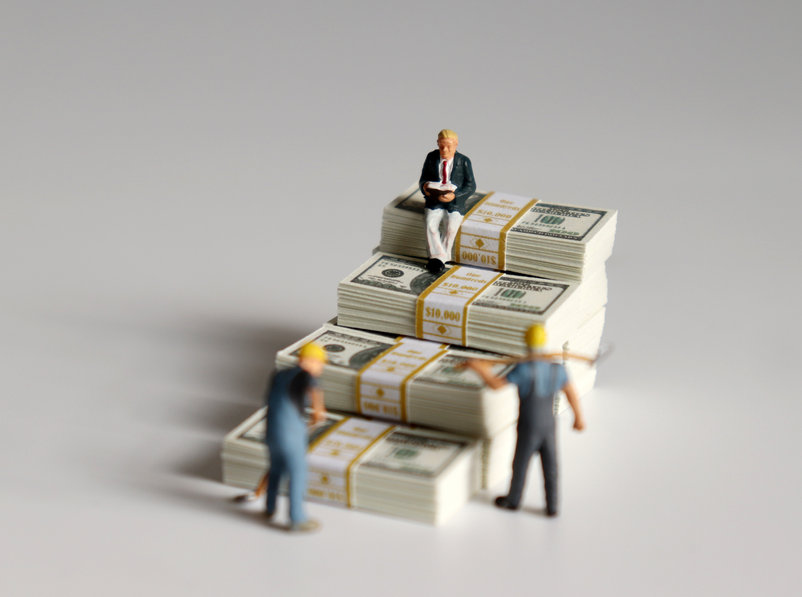The Problems With the Tax System in America
As of 2021, the top 0.1% of our country holds more of the nation’s wealth than the bottom 90% combined. Not only is this systemic inequality unfair, but it’s also dangerous. Levels of inequality this severe have led to revolutions and war in the past. In fact, we’ve surpassed pre-revolutionary France in terms of how unequal we’ve become. Yet, when examined closely, this seems to be the direct result of our tax policies. How did we come to this?
Distribution of the Tax Burden
Historically, our top tax brackets have been as high as 93%. Today, the highest tax bracket we’ve got is less than 40%. Still, that only tells part of the story. Let’s illustrate our point with an example.
The median household income in the United States was just under $70,000 last year. At this level, federal taxes take about 12% overall. So, you’d pay nearly $8,500 in federal income tax if you earned $70,000. You’d have about $62,500 after paying your taxes in this case.
For someone earning $500,000, they’d pay an effective tax rate of around 29%. As such, they’d owe a little more than $145,000 in federal income taxes. Now, that does sound like quite a bit. But, they’d still be left with more than $350,000.
Surely, it’s not hard to see why lower-income people still struggle. After paying taxes, you’re left with enough to support your household, but little to invest. High-income earners can use whatever they’ve got left after taxes to earn even more. Thus, further exacerbating our inequality problem.
Wealth vs. Income
There’s more to our inequality than just income, though. Wealth inequality is even more severe. And, wealth can be used to generate more wealth. At the moment, there is no wealth tax other than the inheritance tax.
That only applies in a limited number of circumstances, too. So, high-income earners can sock away their savings. Then, they pay nothing for their unrealized capital gains. Without a wealth tax, the wealthy become wealthier without any tax exposure.
Taxing wealth could level the playing field, so to speak. And, it’d give us an additional source of revenue. As a result, lowering the tax burden for individuals wouldn’t be such a challenge.
Potential Progressive Policies
Changing our inequality starts by creating a fair tax structure. Above all, we must eliminate loopholes used by the wealthy to create an unfair advantage.
Simply taxing wealth directly could achieve much of this goal. Then, we should raise the highest tax brackets far higher than they are now.
A progressive tax code would lower the burden on the lowest-income citizens. At the same time, it would raise it on the wealthiest.
Also, we must stop giving corporations a free pass. There’s no justification for companies like Amazon to pay nothing in federal taxes.
American Inequality Is a Result of Our Current System
Refusing to tax major corporations has done more than just boost their profits. It’s driven American inequality to levels not seen since the Gilded Age. Our current inequality problem isn’t something that just happened. It’s a direct result of a poorly constructed tax code, used by the wealthy for their own benefit. Changing that is the first step to creating a more equitable country.
About Us
Our mission is to discuss pressing issues that America and the world are facing today, such as poverty, the environment, and human rights issues.
We believe that it is our responsibility to vote for politicians who will implement progressive policies that will help the impoverished, the minority, and the environment. Our hope is to spread information about these issues to people who are misinformed or unaware of these situations in our country.
Contact Us
If you wish to contact us, we can be reached via email at admin@whatliberalmedia.com. Feel free to shoot us a message if you have any concerns, comments, questions, or anything related.

